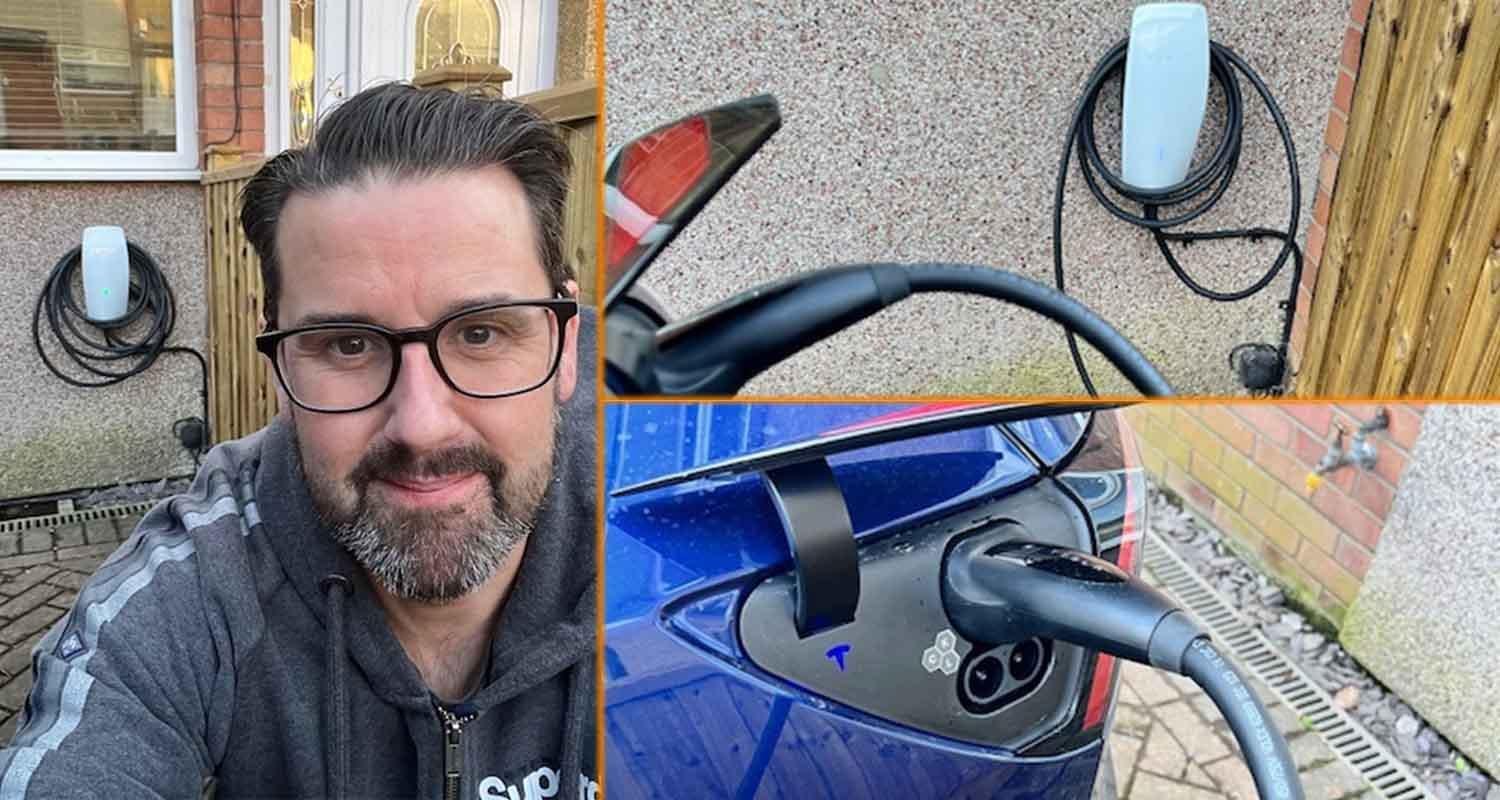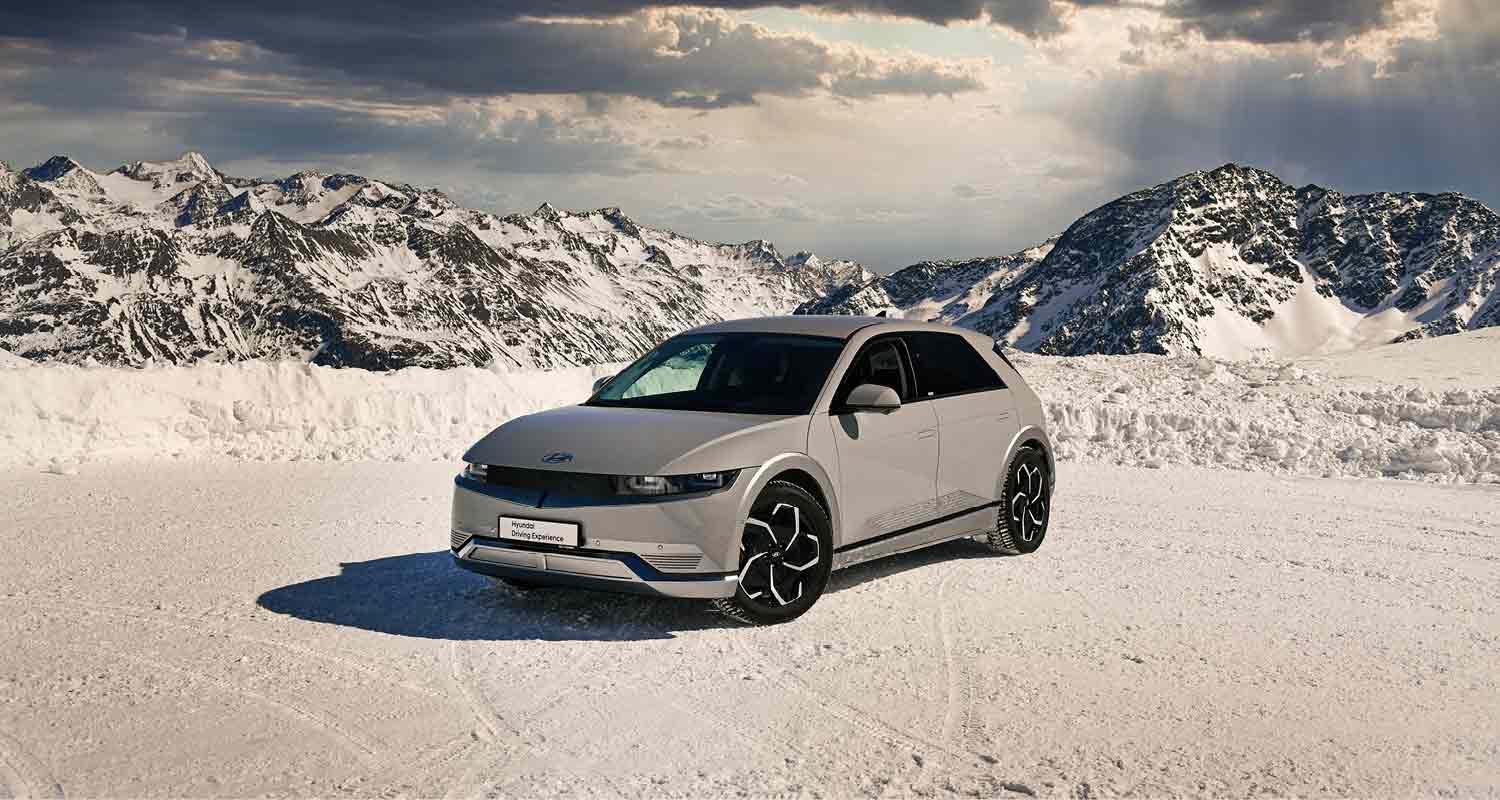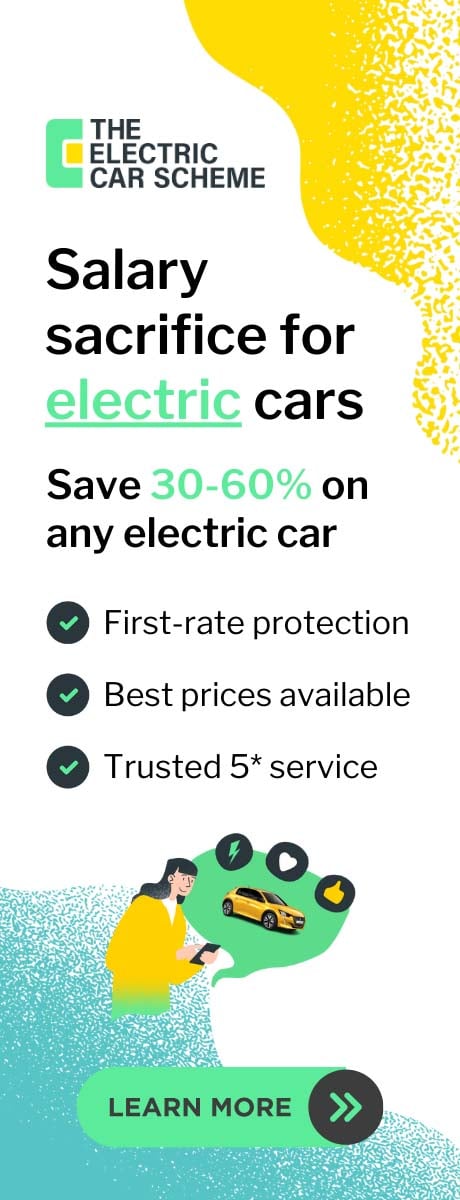Is an electric car right for me?
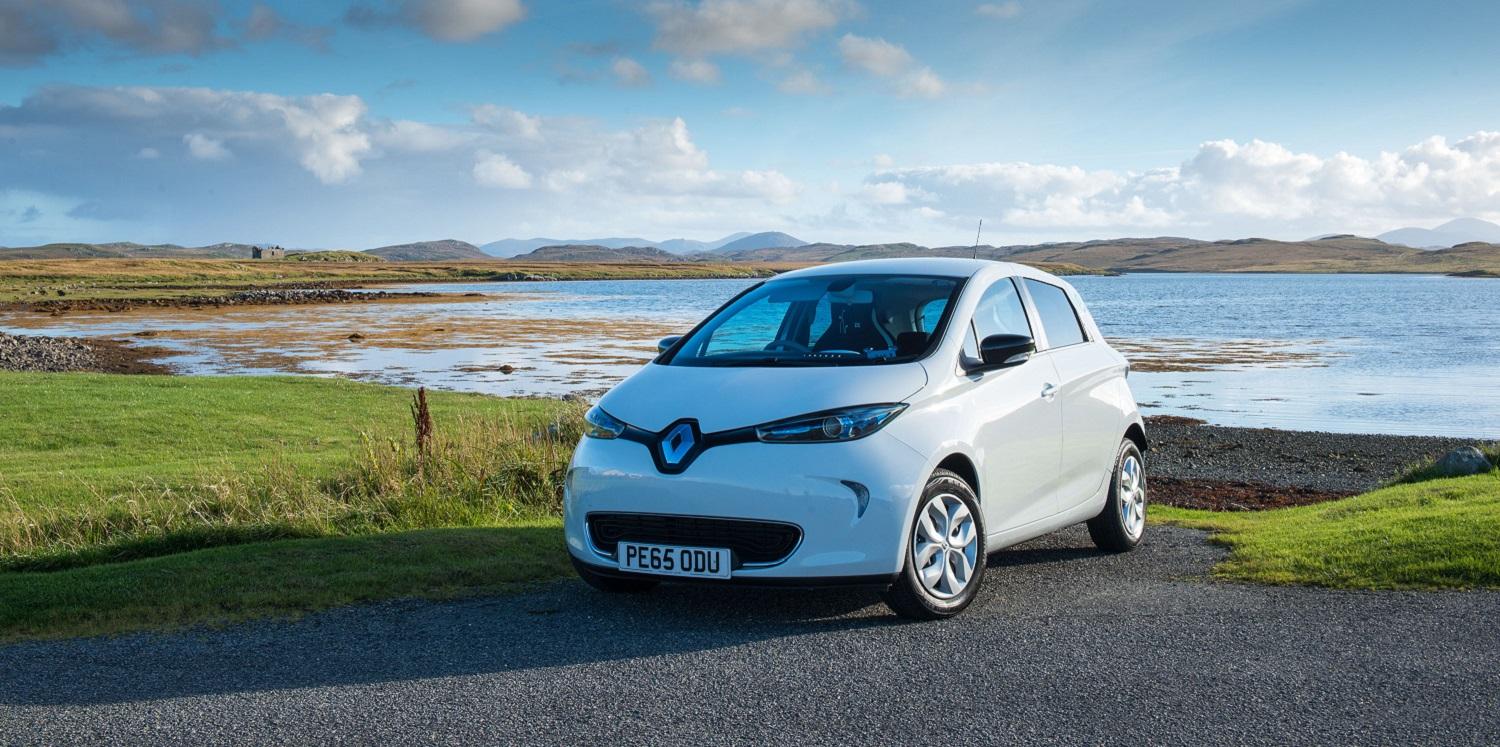
Is there enough range? Won't my electricity bill go up? Electric cars are expensive to buy, aren't they? Don't worry, these are all legitimate questions on their own when buying an electric car. But none are bigger questions than - is an electric vehicle right for me?
The short answer is yes, an electric car is right for you. However, if you're still on the fence about whether to buy an electric car, this guide will help you transition from a petrol or diesel car and join the ever-growing number of EV owners.
Browse our product range
We have a range of chargers to suit most people's charging needs and budgets. Browse our range and click "request a quote" to get started.
Lots of people have already switched
The SMMT (The Society of Motor Manufacturers and Traders) has reported on growing sales of electric vehicles as manufacturers bring new electric cars to market.
In January 2023, for example, hybrid electric vehicle comprised 14.4 per cent of new car registration, increasing volumes by 40.6 per cent.
Battery electric vehicle registrations rose 19.8 per cent to reach 17,294 units or 13.1 per cent. Essentially, one in five new cars is now being sold with a plug.
What this shows is that people are making the technology work, and increasing numbers are making the switch. What are you waiting for?
Can you get a home EV charger?
Having off street parking is a big help – but not necessarily essential. Off-street parking allows you to charge your car cheaply and conveniently, while you're sleeping to make use of lower electricity tariffs. For further details on home chargers, be sure to check out our guide to home car chargers and our pick of the best EV chargers you can buy right now.
Save money by charging at home
A smart EV charger gives you access to EV friendly electricity tariffs, which can help you save hundreds per year on car charging costs. In addition, your wider home energy use benefits from the lower price.
Compare EV energy tariffs
Find the right energy tariff for you and your charging needs using our handy energy tariff comparison tool.
“Fuelling” an electric car is more like charging a phone
Two of the main criticisms levelled at electric cars are:
They don't have enough electric range (spoiler alert – they do!)
They take ages to charge (not quite true and we'll explain why. Let's call it a draw for now)
Think about when and how your charge your phone. It might only have a “range” of 8 to 11 hours – it's not very much when you think about it, but you don't use your phone for 11 hours consistently. You use a bit here and a bit there.
In fact, most of the time it isn't being used (like a car). When you aren't using it, you can top up the battery (like an electric car). When you get home, you can plug it in to charge (like an electric car). When you're asleep, you charge it overnight to wake up with a full battery (just like an electric car).
You see, the electric car might not have the same “range” as your petrol or diesel vehicle, but just like a smartphone you very rarely need it all anyway. In the same way you wake up to a full battery on your smartphone or charge it when you aren't using it, this also applies to an electric car – so it hardly ever runs out of battery anyway.
EV manufacturers are constantly improving battery technology in order to increase range, and the growth of rapid charging means less time recharging EV batteries, and more time driving.
Who is an electric car for?
The short answer is - everybody. But here are some scenarios to help explain why an electric car suits everybody.
The cost conscious
Running an electric car is much cheaper than running a petrol or diesel car, despite the doom and gloom around current electricity prices. For starters, electricity is cheaper than fuel, but electric vehicles are just more efficient overall.
Typically a petrol or diesel will cost anywhere between 12-20 pence per mile (and higher), whereas an electric car will cost closer to 5 pence per mile and sometimes as low as 2 pence per mile.
The maintenance costs are lower too. Very minimal car tax compared to petrol and diesel models. No oil changes like conventional cars. There are fewer parts to repair or replace with electric vehicles too. There are also opportunities for free charging – you don't get that with petrol or diesel cars.
Of course, a new electric car is often more expensive in the first place, but if you're in the market for a new electric vehicle then the cost savings soon mount up for an EV. Plus, prices are coming down all the time and some electric cars are cheaper than their petrol counterparts.
The cheapest electric cars are, of course, used electric cars. But what about concerns surrounding battery life? Though the electric range does diminish over time, this is hardly noticeable and no reason to not buy an electric car.
The old plug in car grant may have been abolished, but electric car sales are increasing. This should mean that replacing internal combustion engines with an electric motor needn't be too expensive in the future. Vehicle excise duty is also much cheaper than for petrol or diesel cars. As a good example, take a look at our website to see how much you could save by using cars such as the Ford Mustang Mach E or Nissan Leaf. The Ford Mustang Mach E and Nissan Leaf are at very different ends of the market, but each can save you money.
The environmentally concerned
Let's get one thing straight. Manufacturing anything is guaranteed to impact the environment in some way. But in terms of sustainability electric cars are already proving to be more capable than petrol or diesel and they can only get better as we switch to renewables and improve the manufacturing process.
In terms of CO2 emissions, electric cars emit less in their lifetime than internal combustion engine equivalents and the shift to renewable energy will only reduce their emissions further. Car manufacturers are already committed to new electric cars only well before the government mandated switch to zero emissions vehicles in a few years' time.
Even if you're sceptical about climate change (the scientific consensus is it's happening!), there is still the local environment to consider. Air quality is becoming a real issue across the UK and we are only just discovering how many health issues have been caused or worsened by air pollution, such as asthma and even heart attacks.
Electric cars aren't perfect in this regard, because many electric cars are heavier than their petrol or diesel car equivalents and this has an effect on tyre particles, but their complete lack of pollutants from the exhaust (there isn't one!) means they are far better for the health of ourselves, our children and our communities.
The speed demons
Electric cars aren't just about boring things like saving money or the environment, although both are pretty important! Porsche is developing a range of sports cars to replace its petrol-powered Boxster/Cayman with electric motors. Most electric cars have far superior torque figures compared to petrol or diesel cars, providing instant access to entertaining acceleration.
They have incredible performance. We'll let this video do the talking for us.
The commuter
Most of us drive fewer than 30 miles a day – easy pickings for an EV, as most do more than 150 miles and plenty do upwards of 250 miles.
The point is most of us do not need a “range” of 500 miles because our daily commutes or even weekly miles is less than this. Then you simply charge up overnight and you have a full “tank” again waiting for you the next morning.
Of course, this is easier and cheaper with off street parking, but the charging infrastructure is ever-growing, and you're never too far away from a charging point. Cheaper, quieter and easier commuting is good for everyone – fewer moving parts means there's less to go wrong, while the lack of noise from a conventional engine means a serene journey.
Vehicle charging times guide
Charging times vary depending on the vehicle, the battery size, how empty the battery is and how powerful the charger is that you're using. This guide on estimated charging times should give you an idea though.
The “I just need a car to go from A to B” people
If you're not really bothered about what car you have, so long as it's safe and gets you to where you want to go then an electric car is a great option, especially if you mainly pootle about town.
A small or family-sized EV can be a cheap and zero-emission way of doing what you need to do. The Renault Zoe is a great example of this, as are the Nissan Leaf and Honda E. They blend a low purchase price with just the right amount of battery capacity for most daily use, with lower running costs than comparable petrol vehicles.
The traveller
Long-distance travelling in an electric car is perfectly possible. It might need a bit more planning than with petrol and diesel cars, but it's definitely doable. There are now more electric chargers than fuel stations, with more public points being installed all the time. In addition, pan-European networks, such as Ionity, make driving on the continent simple.
If you own a Tesla, then things get even easier using Tesla's exclusive Supercharger network
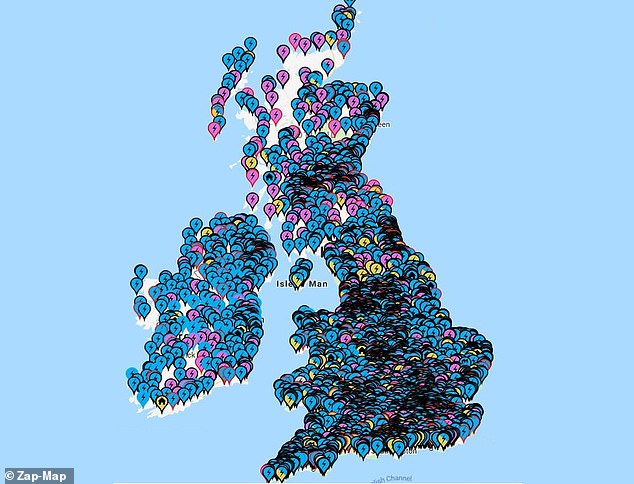
Just a few chargers available to replenish electric car batteries then! However, your EV doesn't have to be your only car. Several EV owners have a car for local journeys, and a traditionally engined vehicle for long journeys. Indeed, a growing number of ICE-powered classic cars use an EV for the day to day.
The business and the employee
Company car tax has meant there is less of an incentive to offer petrol and diesel cars as a perk or even have a company pool car, but the Government is keen for us to move to electric power. But from April 2022, electric cars will have a 2% BIK Rate (Benefit-In-Kind). That makes a battery electric vehicle an incredible option for company car drivers and business owners.
What about hybrid cars?
If you're still not quite ready to swap your petrol or diesel engine for battery packs, then a plug-in hybrid offers a great mixture of range and familiarity with traditional engines, but with cleaner battery power in urban environments. Several car manufacturers are building hybrid cars that automatically sense when you're in a city, and move to zero emission battery power in these areas. The best thing is that a plug-in hybrid is a great pathway to become an EV driver in future.
In summary, electric cars are a fantastic alternative and even replacement for petrol and diesel vehicles. Browse the range of fully electric and plug-in hybrid vehicles or take a look at our list of chargers. Now really is the time to buy an electric car!


